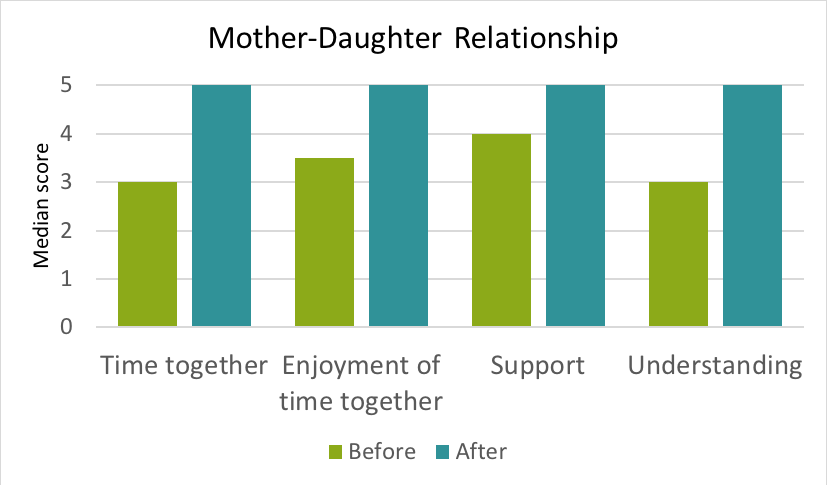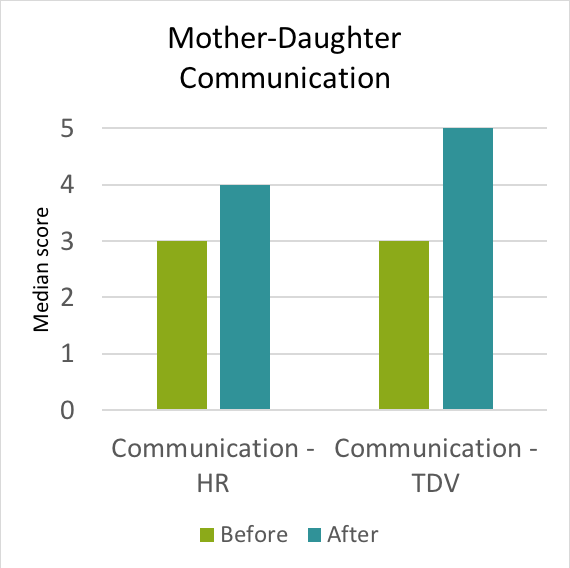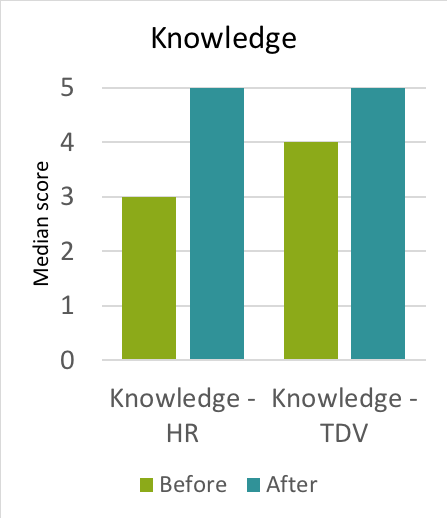Greetings! I am Sarah Fleming, MSW, Grants & Evaluation Coordinator at Casa de Esperanza. I have been fortunate to work with amazing evaluators such as Dr. Josie Serrata and Dr. Rebecca Rodriguez at our National Latin@ Research Center on Family and Social Change and experienced Latin@ practitioners like Ivette Izea-Martinez in our community-based domestic violence prevention initiatives. As a white student evaluator at a culturally-specific organization, it has been important for me to learn from these mentors about listening to Latin@ community members and shaping evaluation around community voices.
For my Master’s program, I worked with Casa de Esperanza’s Fuerza Unida Amig@s Community Engagement Initiative to conduct an evaluation of the Mother Daughter Retreat, a component of a culturally-specific, family-based teen dating violence (TDV) prevention program. The Mother Daughter Retreat grew out of community listening sessions which found that Latin@ youth and parents desired for a space to talk about healthy relationships. In addition, emerging research suggests that family connectedness, cohesion, and communication are important protective factors against TDV for Latin@ youth. The retreat provides an opportunity for Latina girls and their mothers to spend a day relaxing at a camp facility with the goal of strengthening mother-daughter relationships and learning about TDV and healthy relationships.
After working closely with staff to learn about retreat objectives and participant experiences, we conducted a bilingual retrospective outcome evaluation. Two months after the retreat, both mothers and daughters perceived statistically significant improvement in their mother-daughter relationship, mother-daughter communication, and knowledge of healthy relationships and TDV. These preliminary findings point to the potential effectiveness of family-based strategies to prevent teen dating violence among Latin@ youth.
Lessons Learned:
- Conducting an evaluation as a white woman in a culturally-specific organization has challenged me to become aware of my own privileged identity and the power that it holds when working with communities of color. As Beverly Peters recently wrote in AEA365, evaluators, especially those from privileged groups, hold immense power. It was important for me to listen to Latin@ colleagues and community members in order to gain a nuanced perspective without letting my biases get in the way.
- Building relationships is essential to successful evaluation, especially in culturally-specific communities. Developing relationships with Casa de Esperanza staff and community members helped me to better understand the programs and be a more effective evaluator. It is also essential to nurture organizational relationships with community. Because of the strong relationships that Casa de Esperanza has built over time with the community members who attended the retreat, we had a fantastic response rate in our evaluation.
Rad Resource:
- Casa de Esperanza’s Research Center has developed the Building Evidence Toolkit, a bilingual evaluation guide for culturally-specific, community-based organizations. The toolkit contains resources for organizations with different levels of evaluation capacity: those getting started, those looking to enhance their evaluation practices, and those looking for a deeper dive in to culturally-specific evaluation.
Do you have questions, concerns, kudos, or content to extend this aea365 contribution? Please add them in the comments section for this post on the aea365 webpage so that we may enrich our community of practice. Would you like to submit an aea365 Tip? Please send a note of interest to aea365@eval.org. aea365 is sponsored by the American Evaluation Association and provides a Tip-a-Day by and for evaluators.



